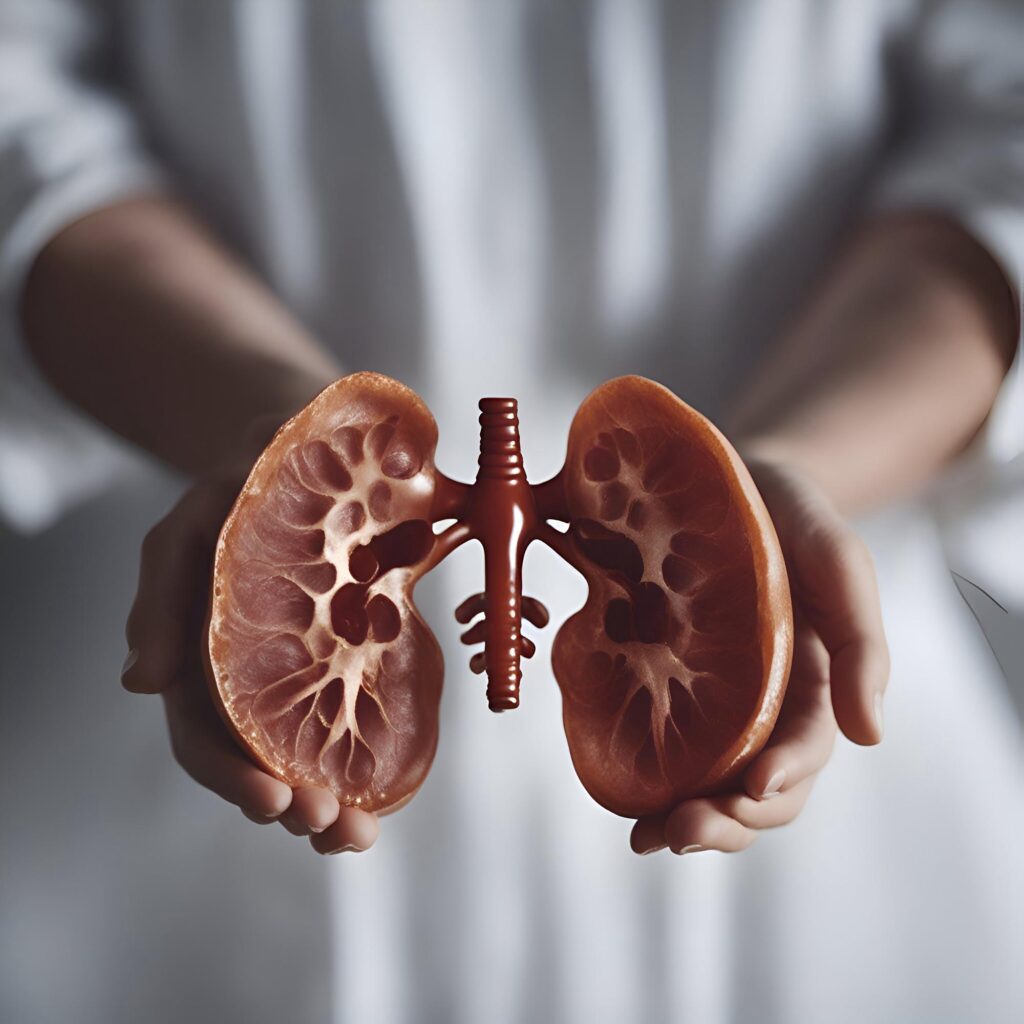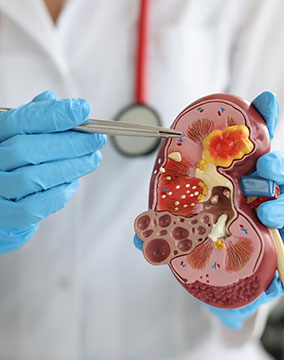
Introduction

Your kidney is like a silent hero. Performing their duties behind the scenes, they filter waste from around 200 liters of blood daily. So we discuss effective ways to protect your kidney.
But what are we doing to ensure their safety?
Welcome to a comprehensive guide where we divulge the secrets of kidney care, allowing you to understand more about these vital organs and how to keep them performing at their best.
Are you aware of how important your kidneys are for your overall health?
The kidneys play a vital role in filtering waste products from the blood and maintaining the body’s fluid balance.
But unfortunately, kidney disease is a growing concern worldwide.
The good news is that there are steps you can take to maintain healthy kidneys and reduce your risk of developing kidney problems.
In this article, we will share with you 10 essential tips for maintaining healthy kidneys.
From adopting a balanced diet to staying hydrated and managing blood pressure, these tips are easy to incorporate into your daily routine.
Whether you are looking to prevent kidney disease or want to improve your kidney health, implementing these tips can make a significant difference.
So let’s dive in and discover how you can take care of your kidneys and ensure they keep functioning optimally for years to come.
The importance of kidney health
The kidneys are two bean-shaped organs located on either side of the spine, just below the rib cage.
Their primary function is to filter waste products, excess water, and toxins from the blood, which are then excreted as urine.
Additionally, the kidneys
- Help regulate blood pressure
- Produce Red blood cells
- Activate Vitamin D
- Maintain the body’s electrolyte balance
With such vital functions, it is crucial to prioritize kidney health.
Common causes of kidney damage
Several factors can contribute to kidney damage, including:
1. High blood pressure: Uncontrolled high blood pressure can damage the blood vessels in the kidneys, affecting their ability to function properly.
2. Diabetes: Diabetes is a leading cause of kidney disease. Persistently high blood sugar levels can damage the blood vessels and filtering units of the kidneys.
3. Smoking: Smoking can worsen kidney disease by reducing blood flow to the kidneys and increasing the risk of kidney cancer.
4. Obesity: Excess weight puts strain on the kidneys and increases the risk of developing kidney disease.
5. Medications and toxins: Certain medications, such as nonsteroidal anti-inflammatory drugs (NSAIDs) and some antibiotics, can cause kidney damage if used excessively or improperly.
Exposure to certain toxins, such as heavy metals and solvents, can also harm the kidneys.
Signs and symptoms of kidney problems

In the early stages, kidney problems may not cause noticeable symptoms. However, as kidney function declines, the following signs and symptoms may appear:
1. Changes in urine output: Increased or decreased urine production, foamy or dark-colored urine, or blood in the urine may indicate kidney problems.
2. Swelling: Swelling in the hands, feet, ankles, or face can be a sign of fluid retention due to impaired kidney function.
3. Fatigue: Feeling excessively tired, weak, or lacking energy can be a symptom of kidney disease
4. Difficulty concentrating: Impaired kidney function can affect cognitive function, leading to difficulty concentrating or memory problems.
5. Shortness of breath: Build-up of fluids in the lungs due to kidney dysfunction can cause difficulty breathing.
If you experience any of these symptoms, it is important to consult a healthcare professional for proper evaluation and diagnosis.
1.Embrace A Kidney-Friendly Diet
A balanced diet plays a crucial role in maintaining kidney health. Here are some dietary tips to keep your kidneys in top shape:
One of the most effective ways to secure kidney health is by adopting a kidney-friendly diet.
It’s “kidney-friendly” because it helps prevent kidney diseases by limiting salt, protein, and other unhealthy elements.
Healthy Foods, Healthy Kidneys
Eat a variety of fruits and vegetables: Fruits and vegetables are rich in vitamins, minerals, and antioxidants, which help protect the kidneys from damage. Aim to include a variety of colors to ensure a wide range of nutrients.
When it comes to promoting the health of your kidneys, certain foods are your best companions:

- Apples
- Blueberries
- Fish (mackerel,sardine,herring fish)
- Olive Oil
Remember that everyone’s dietary needs differ depending on their overall health, lifestyle, and whether or not they have a kidney disease.
Choose healthy protein sources
Include lean meats, fish, poultry, eggs, beans, and legumes in your diet for a good source of protein. Avoid excessive consumption of red meat, as it can contribute to kidney damage.
2.Control portion sizes

Overeating can lead to weight gain and put extra stress on the kidneys. Practice portion control and listen to your body’s hunger and fullness cues.
3.Limit Salt Intake

Excessive sodium consumption can raise blood pressure and strain the kidneys. Opt for fresh, whole foods and avoid processed and packaged foods high in sodium
An excessive amount of sodium can spike blood pressure, resulting in kidney damage over time.
A helpful tip: instead of relying on salt for flavor, learn to season your food with herbs and spices
4.Stay mindful of phosphorus and potassium
If you have kidney disease, it is important to monitor your intake of phosphorus and potassium. Consult a registered dietitian for personalized guidance.
By adopting a kidney-friendly diet, you can support overall kidney health and reduce the risk of developing kidney problems.
5.Regular Exercise: A Strong Investment

Regular exercise offers an excellent return for your kidneys and overall health, aiding in controlling blood pressure and reducing weight, both crucial aspects of kidney health.
Regular physical activity not only benefits cardiovascular health but also plays a role in kidney function.
Exercise helps improve blood flow and reduces the risk of chronic conditions, such as high blood pressure and diabetes, which can contribute to kidney damage.
Here’s how you can incorporate exercise into your routine:
Workout Do’s and Don’ts
While understanding the importance of exercise is beneficial, it’s equally important to ensure our exercise practices are suitable for kidney health.
1. Aim for at least 150 minutes of moderate-intensity aerobic activity or 75 minutes of vigorous-intensity aerobic activity per week. This can include activities such as brisk walking, jogging, swimming, cycling, or dancing.
2. Incorporate strength training exercises at least twice a week to build muscle and improve overall fitness.
3. Find activities you enjoy: Choose activities that you find enjoyable and can stick to in the long run. This will make it easier to incorporate exercise into your daily routine.
Remember to consult with your healthcare provider before starting any new exercise program, especially if you have an existing medical condition.
- DO engage in regular, moderate-intensity activities such as walking or swimming.
- DO focus on maintaining your body weight at a healthy range.
- DON’T exercise so intensely that you become severely dehydrated. Dehydration can be harmful to the kidneys.
6.Hydrate, But Don’t Overdo It

Staying hydrated helps kidneys clear sodium and toxins from the body. However, overhydration doesn’t increase kidney function. So, balance is key.
Proper hydration is essential for kidney health. Water helps
- Flush out toxins and waste products from the body,
- Preventing the formation of kidney stones and
- Reducing the risk of urinary tract infections.
7.Here are some tips to stay hydrated
1. Drink an adequate amount of water: Aim to drink at least 8 cups (64 ounces) of water per day, or more if you engage in physical activity or live in a hot climate. Carry a water bottle with you to remind yourself to drink throughout the day.
2. Limit sugary and caffeinated beverages: Sugary drinks and caffeine can dehydrate the body. Opt for water, herbal tea, or infused water with fresh fruits for added flavor.
3. Monitor urine color: The color of your urine can indicate your hydration status. Pale yellow urine indicates good hydration, while dark yellow urine may indicate dehydration. Aim for a pale yellow color.
Proper hydration is essential for maintaining healthy kidneys and overall well-being.
Remember: Your hydration requirements depend on weather, exercise, and health conditions.
8.Remember Good Habits: Every Little Helps
Apart from diet, exercise, and check-ups, additional habits can aid kidney health.
Avoiding harmful substances for kidney health
Certain substances can have a detrimental effect on kidney health. Here are some substances to avoid or limit:
1. Smoking: Smoking damages blood vessels and reduces blood flow to the kidneys, increasing the risk of kidney disease.
2. Excessive alcohol consumption: Heavy drinking can lead to kidney damage and increase the risk of high blood pressure and liver disease.
3. Non-prescription drug abuse: The misuse of non-prescription drugs, such as NSAIDs, can cause kidney damage. Always follow the recommended dosage and consult a healthcare professional if you have concerns about medication use.
4. Illicit drug use: Illicit drugs, such as cocaine and heroin, can cause severe kidney damage and other health complications. Avoid the use of illicit drugs.
By avoiding these harmful substances, you can protect your kidneys and reduce the risk of kidney disease.
Beneficiary Habits
- Control diabetes and high blood pressure
- Quit smoking
- Limit alcohol consumption.
- Avoid frequent, long-term use of over-the-counter pain medications.
9.The importance of regular check-ups and screenings

Regular check-ups and screenings are essential for identifying any potential kidney problems early on. Here’s what you can do:
1. Schedule regular appointments with your healthcare provider: Regular check-ups allow for the monitoring of your overall health, including kidney function.
2. Get your blood pressure checked regularly: High blood pressure is a leading cause of kidney disease. Monitoring your blood pressure can help detect any abnormalities and allow for early intervention.
3. Undergo routine blood and urine tests: Blood and urine tests can provide valuable information about kidney function and identify any signs of kidney damage or disease.
Early detection of kidney problems can help prevent further damage and allow for timely treatment.
10.Stress management and its effect on kidney health
Chronic stress can have a negative impact on kidney health.
Prolonged stress activates the body’s stress response, which can increase blood pressure and potentially damage the kidneys.
Here are some stress management techniques to incorporate into your daily life:

1. Practice relaxation techniques: Engage in activities such as deep breathing exercises, meditation, yoga, or Tai Chi to promote relaxation and reduce stress levels.
2. Prioritize self-care: Make time for activities that bring you joy and help you unwind, such as reading, taking baths, listening to music, or spending time in nature.
3. Seek support: Reach out to friends, family, or a mental health professional for support and guidance in managing stress.
By managing stress effectively, you can support your kidney health and overall well-being.
Conclusion: Taking proactive steps for kidney health
Maintaining healthy kidneys is crucial for your overall health and well-being.
By adopting a balanced diet, staying hydrated, exercising regularly, avoiding harmful substances, scheduling regular check-ups, and managing stress, you can take proactive steps to support kidney health.
Remember, prevention is key, and early detection of kidney problems can make a significant difference in maintaining optimal kidney function.
Start implementing these essential tips today and give your kidneys the care they deserve. Your future self will thank you.
In this comprehensive article, we have discussed
- The importance of kidney health
- Common causes of kidney damage,
- Signs and symptoms of kidney problems
- Tips for maintaining healthy kidneys through diet
- The role of hydration
- Exercise
- Avoiding harmful substances
- The importance of regular check-ups and screenings
- Stress management for kidney health
By following these 10 essential tips, you can take control of your kidney health and reduce the risk of developing kidney problems.
Remember, prevention and proactive care are key to maintaining optimal kidney function.
Start implementing these tips today and prioritize your kidney health for a healthier future
So ask yourself today, “What step will I take for my kidneys?” An opportunity to cherish kidney health awaits your action.
Related Content
Blood in urine:The Ultimate Health Scare You Need to be Aware of
Sources:

These information are very appreciated everyone can understand the things properly.
Your efforts in curating such content are truly appreciated, and I look forward to more enlightening reads in the future.